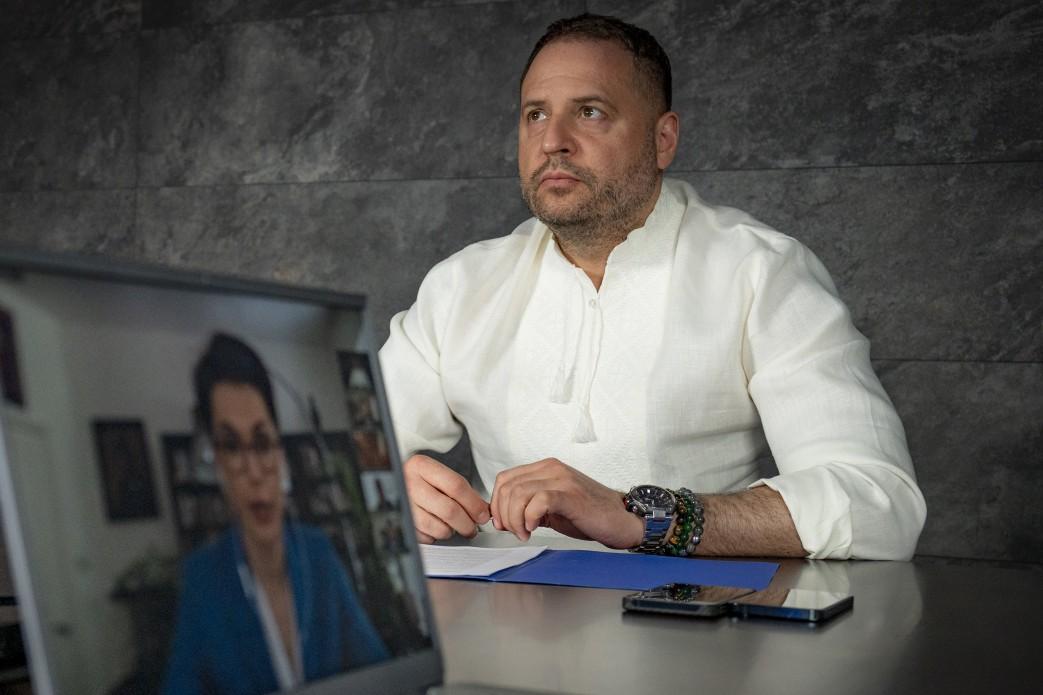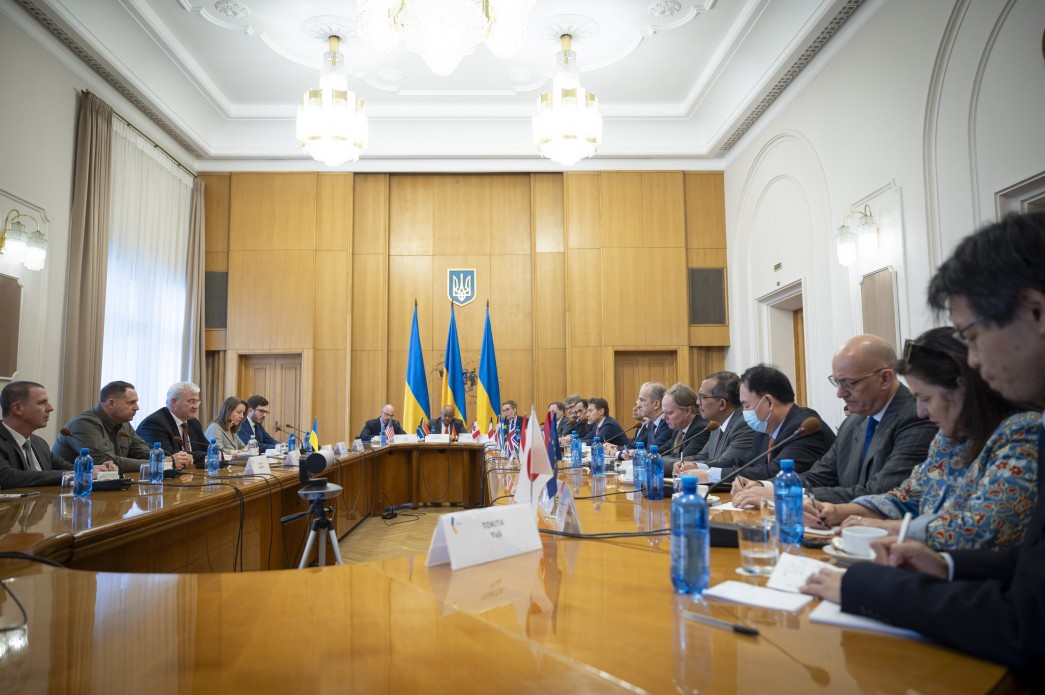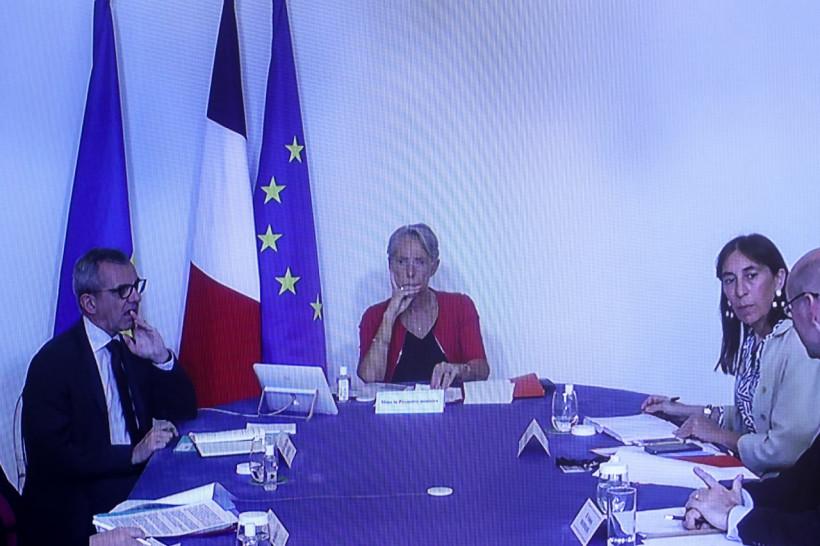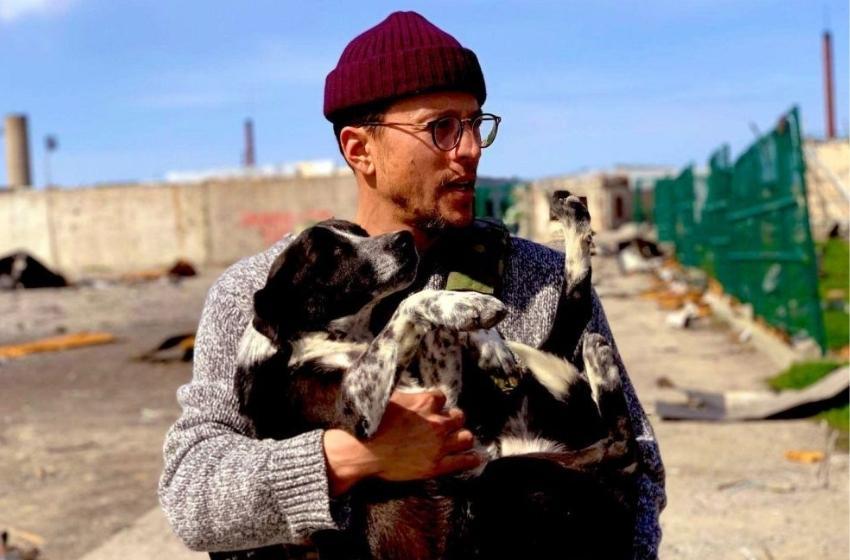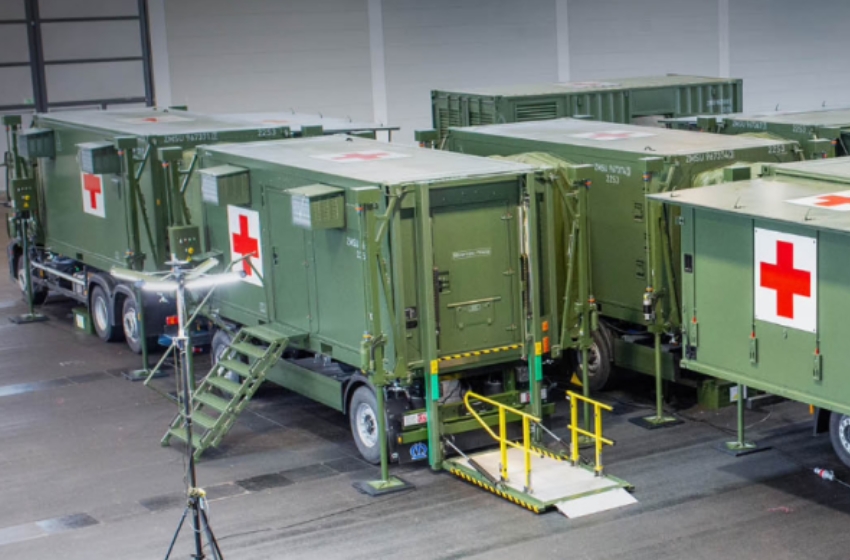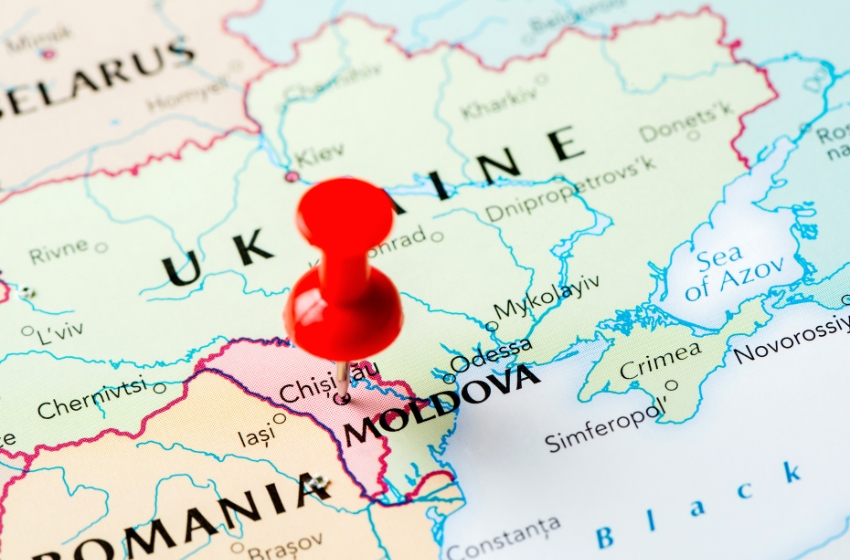Speech by the Head of the Office of the President of Ukraine, Andriy Yermak at the Chatham House
"Don't ever take a fence down until you know the reason it was put up." Gilbert Keith Chesterton advises in The Thing. That is, not understanding the reasons for the current state of affairs can lead to wrong actions that will worsen this state of affairs.
You are aware of our current state. Ukraine is successfully resisting one of the world's largest armies. Much longer than expected in the world.
It is important to understand clearly that no concessions could stop the Russian invasion other than unconditional surrender, a renunciation of national identity, sovereignty, and territorial integrity. Actual consent to colonial status.
Russia's political culture does not provide for a regime of dialogue. Its basis is dictation—the language of power. And Russia gained strength in cooperation with the West. What the military-industrial complex cannot make - and that's a lot - she bought. Mostly for money from the export of raw materials. First of all, energy. And even after Moscow clearly demonstrated its imperial ambitions. In Georgia. In Ukraine. In Syria. Again in Ukraine. Oil went to the West. The money went to Russia. Business as usual.
This must end.
The current war must be Russia's last. It must culminate in the full restoration of Ukraine's territorial integrity and sovereignty. That is our victory. Our common victory with the civilized world. After all, today, Ukraine is defending not only itself. Ukraine today is the Thermopiles of Europe.
Helping Ukraine is a way to resolve the contradiction between value policy and realpolitik. It is not just a matter of moral choice, it is also an investment in European and world security. So let me paraphrase Chesterton's statement: do not avoid participating in the construction of the fence when you know why you need it. And you know. It should consist of four parts:
- A weapon for Ukraine.
- The continuation and intensification of sanctions pressure.
- The establishment of reparation mechanisms and economic assistance.
- Building a reliable system of guarantees.
So, by points.
The first is weapons. We still need it. We are very grateful to our allies for supplying it. We believe in the sincerity of our intention to fulfill our commitments fully. I must say that we still lack heavy weapons, and we still don't have MLRS. I learned this word, like many Ukrainians, for life.
This equipment can save the lives of our people. Not just the military. After all, for the Russians, the civilians of Ukraine are also legitimate goals. As well as civil infrastructure. That's why wasting time is too expensive for us - in every sense.
Russian troops' occupation and shelling of nuclear power plants and blackmail by nuclear strikes pose a threat of global catastrophe. The inability to exploit almost a third of our sown areas, the systematic destruction of Ukrainian agricultural and transport infrastructure by Russian troops and the blockade of our seaports are elements of Russia's overall strategy to pressure the international community. As the UN leadership warns, the threat of a food crisis and the risk of famine in dozens of countries are very real today.
Our goal is to establish peace as soon as possible. The longer this war lasts, the greater the risks to the entire planet. But this peace must be just. Ukraine's sovereignty and territorial integrity is not a subject for compromise. Russia must liberate our territories, including the Ukrainian Crimea and the Ukrainian Donbas.
As you can see today, the Russian offensive is choking, they are moving to the defense, trying to hold the occupied territories and create the conditions for another agreement, which will still be violated soon. As was the case with the two Minsk agreements. This is unacceptable for us.
The aggressor must not be given a chance to absorb Europe again.
That is why the second point is very important here, namely sanctions. Of course, they do not have such an immediate and direct impact on hostilities as the supply of weapons. But they can limit Russia's ability to pursue aggressive policies. They are able to deprive it of the finances, technology and materials needed to restore military capabilities. Therefore, they must be long-term. Effective punishment of Russia will also deter other potential aggressors. The five existing sanctions packages are clearly not enough.
To this end, in late March, President Volodymyr Zelensky took the initiative to create a "sanctions" group. After that, I invited my friend and friend of Ukraine, Michael McFaul, to gather leading international and Ukrainian experts who would be operational to assess the work of sanctions and increase their effectiveness. This experience has already been very successful, and perhaps a similar format should be introduced in Europe. We are ready for this.
In April, our team presented an Action Plan to strengthen sanctions against Russia. The main goals are a complete embargo on Russian energy, paralysis of the entire banking sector, and access to financial markets. Due consideration should also be given to coordinating partner actions and secondary sanctions against states and companies that help the aggressor circumvent restrictions.
At the same time, it is important to conduct thorough investigations to neutralize Russia's corrupt influence in Europe, America and other parts of the world.
Recognition of Russia as a sponsor of terrorism is also very important. This is a mighty and critical step. As you know, the Seimas of Lithuania has already done that. And the US Senate has also already registered a resolution. These actions should serve as an example for other states.
On May 9, our team presented a Roadmap - a step-by-step strategy with detailed recommendations for the European Union on implementing energy sanctions.
This is extremely important. After all, since February 24, the European Union has paid $ 800 million a day for imports of Russian oil and gas. I emphasize that the EU indirectly financed the Russian aggression against our country with this money.
We have seen such assistance before. In particular, during the attempt to implement the Nord Stream 2 project. You remember that we warned that Russia is considering and will consider such projects as geopolitical weapons. We warned about the inevitability of energy blackmail. But they didn't want to hear us until it was too late.
Now we want to be heard for the first time. We offer partners to use a unique opportunity to get rid of dependence on Russian energy in a short time. Destroy the energy dictatorship. And deprive Russia of geopolitical weapons. In other words, today, restructuring Europe's energy consumption is self-defense and investing in its development and future. Energy freedom and energy democracy are the key to the future.
We, therefore, welcome the European Commission's decision to impose a total ban on Russian oil imports. We welcome the determination of those governments that are implementing the energy embargo. Our Roadmap provides recommendations for reducing shocks for European economies. This includes regulated import tax (or tariff) and storage of energy funds in a special escrow account.
We also welcome a similar initiative by the US government to impose tariffs on Russian oil by the European Union. Especially since the funds from the payment of duties may go to the Fund for Reconstruction of Ukraine.
Here we come to the next extremely important problem. And this is the third point - the creation of an effective mechanism to compensate Ukraine for the damage caused by Russian aggression. We need to resolve some issues as soon as possible. National courts and international arbitrations have no jurisdiction, the European Court of Human Rights cannot enforce its decisions, and the UN is almost paralyzed by Russia's presence in the Security Council.
Sources of compensation can be the already mentioned special taxes and duties on Russian energy and transactions, as well as public and private property. However, Russia's foreign assets are protected by sovereign immunity, and the inviolability of private property protects the rights of oligarchs. And this is despite the fact that Russia itself ignores international law, and the capital of Putin's so-called wallets are mostly of criminal origin.
Therefore, we need a legitimate international mechanism that will compensate for Russia's losses and will operate despite its categorical refusal to cooperate. The Presidential Decree has already established a profile working group, which I have the honour to chair. Our and international experts, in particular Markian Kluczkowski, Jeremy Sharp, Amal Clooney, and many others, are working on a draft of such a mechanism, and it will be presented soon. We consider reparations agreements as an element of Ukraine's post-war reconstruction. Among such measures, we also expect the regime of maximum admission of Ukrainian goods to the markets of our allies and partners, and the launch of the so-called Marshall Plan for Ukraine.
The case of Ukraine's reconstruction can be a success story for Europe, as it will be a huge construction and investment platform that can give impetus to the development of European economies. Already, a number of countries are taking care of the restoration of our regions. For example, Denmark has taken over the Mykolaiv area, Great Britain is ready to be engaged in the Kyiv area. This format should be extended to other regions. Ukraine can become a global showcase for the success of the community of democracies, absorbing all the best both in terms of infrastructure, technology, and values. After all, the crisis opens up opportunities.
But these assets need reliable protection. That is, we move on to the fourth point.
The war taught us to believe only in facts. And they are. Russia's efforts have destroyed the current system of international relations. Every day of war is a stress test for global structures. In particular, the issue of rescuing people from Mariupol is a very hot topic today. This is the biggest test for the International Committee of the Red Cross and the United Nations in 70 years. I must point out that the United Nations and personally the Secretary-General, Mr. Guterres, with whom I am in constant contact several times every day, are now taking a very active part in the humanitarian mission in Mariupol. However, this is about the consequences of aggression, and I would like to talk about preventing it.
NATO is the only institution today capable of providing a reliable security umbrella to its members. However - I must say this - because of the national selfishness of a number of states, it continues the policy of double standards. The Alliance supports the illusion of open doors for Ukraine, and opens them widely to other countries. In such circumstances, we are forced to look for other options, and look for them together with our partners.
What will be the main security contours of Ukraine itself?
I want to emphasize that we do not see an alternative to membership in the European Union. We consider any proposals for his "substitutes" that we have heard recently to be by definition unacceptable. For us, integration into the European Union is not only a way to modernize, reform the state and increase GDP, but also one of the factors in ensuring our security.
If you take to the streets of Warsaw or Vilnius, or Prague, or Paris, or Vienna, or any European capital, ask ordinary passers-by which country could protect them from Russia in an attack. I am sure that many of them will name our country Ukraine. Name a country that is not currently a member of NATO, not a member of the European Union. Today, after this war, we are able to strengthen these organizations. We can definitely become a valuable asset for them. And ordinary people in Europe and the world today understand this. Isn't it time for politicians to listen to the opinion of their voters?
We have a highly negative experience of the Budapest Memorandum. We see attempts by some significant powers to reconcile Ukraine with Russia on Kremlin terms. We must insist that future security guarantees are legally binding and ratified by all participants in this situation.
Obviously, we do not see Russia among the guarantors, which systematically denies the fundamental principle of international law Pacta sunt servanda ("Treaties must be fulfilled"). It is inadmissible even to discuss the possibility of saving the face of the aggressor state and the terrorist state. Our dead and injured will not allow us to do that.
The common goal of Ukraine and the guarantor states should be to deter Russia from aggression in the future. First of all, it means ensuring Ukraine's defense capabilities. We have shown the whole world that we are capable of resisting the forces of the enemy that are at times superior.
But in the future, we hope that the guarantors will remove all politically motivated restrictions on the supply of conventional weapons to Ukraine and help quickly restore and maintain its defense capabilities at the appropriate level. Especially during the reconstruction of the Ukrainian industry.
Another key factor in the security guarantee system should be a long and flexible sanctions policy.
This set of security measures could become a kind of testing ground in the future - the basis for creating a global coalition of responsible states that will be ready to respond effectively to any aggression within 24 hours. Let me remind you that our President Volodymyr Zelensky proposed a similar format of cooperation back in March. We call it U24, United24.
To build this system, we will have to modernize international law. First of all, expand the definition of aggression to include the tools of modern hybrid warfare.
Basic international organizations need to be reformed. Common sense tells us that no country can be a member of the UN as long as it behaves like a terrorist and an aggressor, and it must lose all rights in the UN and other organizations on the first day of the aggression.
In the long run, the U24 security system should become global. After all, our world is becoming more integrated. And if someone, because of size, wealth or ambition, believes that he has the right to reject the rules of civilized coexistence… Well. This is precisely what Robert Frost said: "Good neighbours start with good fences."
Thank you very much for your attention. Thank you very much for your support. And know that our, I am sure, quick victory will be our common victory. And Ukrainians will never forget all the efforts of our friends and partners. Because today this war for freedom is not only Ukrainian. It is global.









